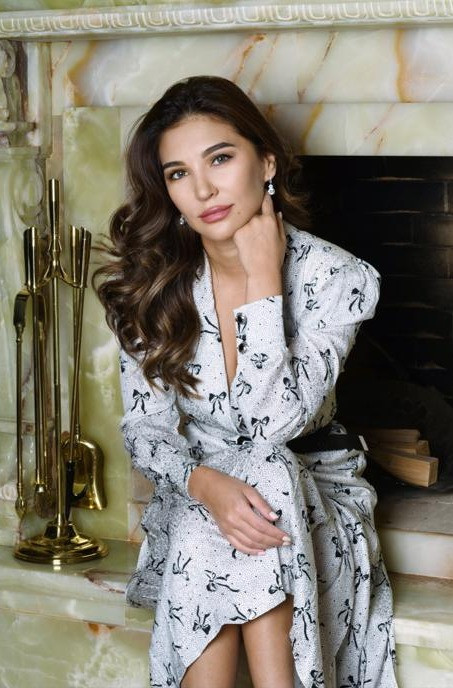
Sofia Tasmagambetova. Theatre + Art = Love

Sofia Tasmagambetova is a natural magician. Thanks to her costume and decor artist talent, countless Kazakh operas become real works of art.
At the end of 2022, the performances of "Eugene Onegin" and "Kalkaman - Mamyr" were presented on the stage of the Astana Opera Theater. In these productions, you acted as a costume and set designer. What are your impressions of this work?
We showed these performances as part of the festival, and the Astana Opera selected them.
"Kalkaman - Mamyr" is a performance with a robust national, large-scale opera flavor. I have a lot of experience working with Kazakh national material. Still, each work of this kind is a new challenge: I have to find insightful interpretations and creative solutions. The impressions from working in the production of "Kalkaman - Mamyr" are lovely: this is my second experience of cooperation with director Yuri Alexandrov, and I am delighted with this experience.
Also, at the end of the year, you won the Umai National Art Award in the nomination for "Best Stage Design" for your work on the design of the play "Alpamys." How important is this recognition to you?
Of course, any award is excellent. But the key is the quality bar I set for myself. Generally speaking, the idea of decor and costumes and the final product are two different things. Consequently, the best reward for me is when the picture from my head and the result of the work match perfectly. I've managed to reach this result several times.
The artist's work is creative and imaginative. Creating a performance is a complex production undertaking. How to make sure that these processes do not conflict?
There is a stereotype that creative people are not disciplined, are not collected, and always get carried away daydreaming. These are totally untrue. When I start work, I have a libretto, a budget, and technical equipment. They are the basis of the work, much like the Terms of Reference. In addition, there is a clear concept of the performance from the director. Yes, I am engaged in creative work, but only with discipline my work comes to life.
This attitude also applies to small things: purchasing materials, sketching, drawing, and adhering to deadlines. How could you even afford to daydream?
I guess you couldn't. And how do you manage to stay sane and avoid burnout in such demanding conditions?
Of course, there is burnout in our business. It is "treated" by a break and reboot. But then you plunge into work with renewed vigor and excitement because we don't have a routine, we don't have an assembly line. Each performance is something new, and it energizes you creatively.
Your parents haven't worked in theater or art. How did it come to be that you became an artist?
I have been drawing since childhood and wanted to become an artist. Well, my older sister Assel advised me to find work in theater, inspired by the biography of the classic Italian cinema producer Franco Zeffirelli. This idea seemed interesting to me: after all, many artists started in theater, for example, the famous member of the "World of Art" association Léon Bakst, who worked on the design of ballet performances by Sergei Diaghilev. Of course, friends warned me that artists who work in theaters tend to stay there for a long time. Well, that's precisely what happened (laughs).
You studied in the UK at the Chelsea College of Art and Design. What is unique about British education?
Initially, I wanted to study easel painting in St. Petersburg at the Academy of Arts. However, my parents thought I would get much more from studying in England. And learning, I went, majoring in Architectural Design.
As part of my internship, I worked for a year in an architectural office in England. I liked it, but I wanted to get a classical art education. As a result, I entered the National Temirbek Zhurgenov Academy of Arts in Almaty, enrolling in the course of the People's Artist of the USSR Mukhamedkhanafy Telzhanov.
I cannot say that education in the UK is some bleeding edge or that it's something unimaginable. But I will name at least one benefit: there was a maximum possible number of specialized lessons and a minimum amount of fillers.
Do you think that you can change the field of activity radically?
I cannot rule anything out. I did not think I would stay in the theater for a long time, but now I have been here for more than ten years.
What do you miss when you leave Kazakhstan?
By the charm and spirit of Almaty, by our cuisine. It's my home and our mountains; they are what I miss the most in the end.